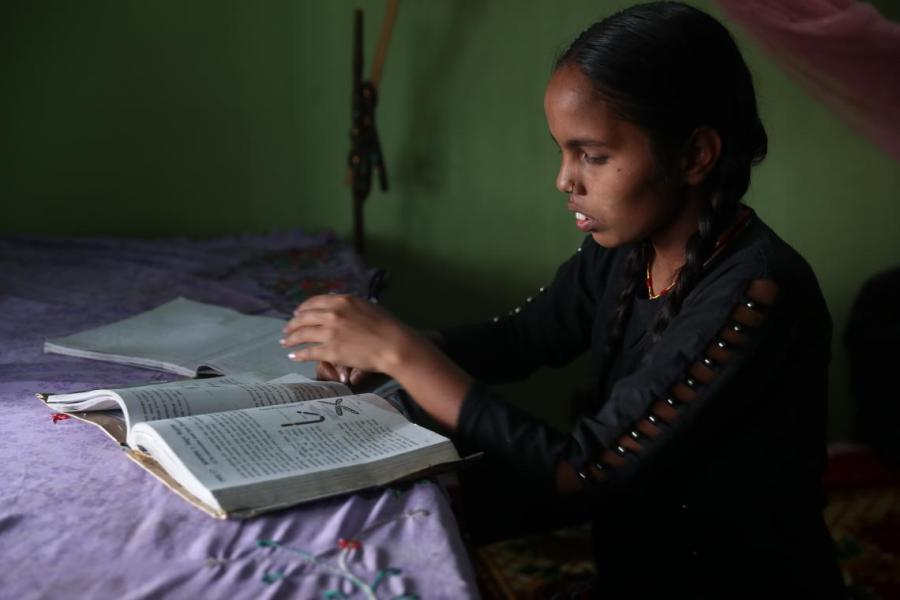Sharpening learning and life skills: Rupantaran

Adolescents and caregivers in southern plains of Nepal are learning to better manage life and relationships with the help of a radio show produced with UNICEF.
Parsa, Nepal: Kumkum Patel stands in front of a group of schoolmates and teachers gathered in a classroom at the Shree Nepal Rashtriya Geeta Gajendraraj Joshi Secondary School in Parsa District in southern Nepal, telling them all a story she has heard. Beyond the story itself – a short cautionary tale about choosing one’s friends wisely – it is Kumkum’s confident stance and clarity of voice that resonates through the room.
“I used to hate speaking in front of a big group,” the 16-year-old admits. “It’s only recently, because of practice during the radio sessions, that I have gotten more comfortable doing it.”
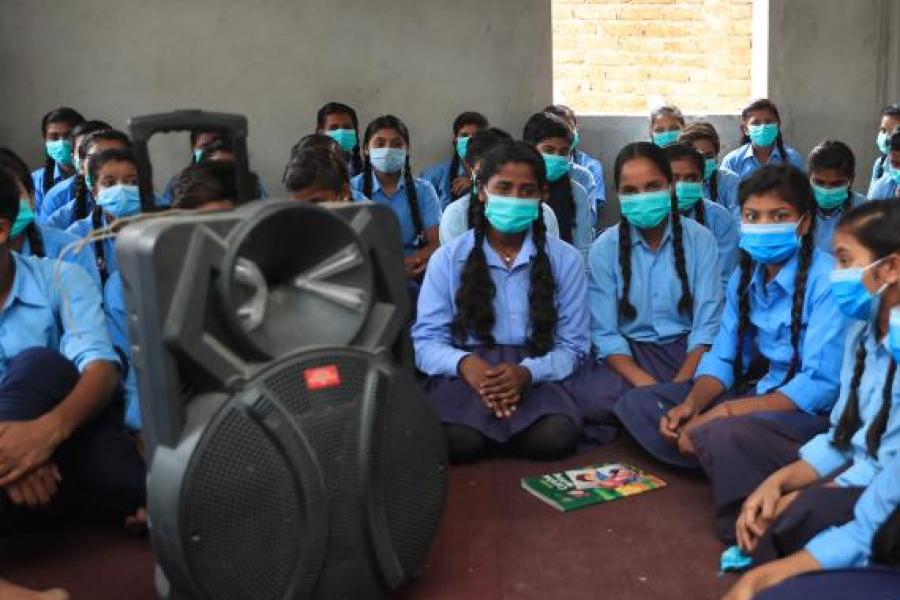
The ‘radio sessions’ that Kumkum is referring to comprise weekly gatherings at the school, where a group of students like her sit together to listen to the Rupantaran radio show, followed by discussions on their reactions and thoughts regarding the content. The show is based on the Rupantaran life skills package that was developed by UNICEF and UNFPA in collaboration with the Government of Nepal with the objective of imparting crucial social and financial knowledge and skills to participating adolescents.
While the Rupantaran programme originally relied on physical sessions in communities, due to the restrictions in mobility and school closures affected by the COVID-19 pandemic, UNICEF and partner organizations had decided to create a radio version in 2020. With generous funding support from the 7 Fund, this was then broadcast via stations across all eight districts in Nepal’s southern plains, in three local languages – Maithili, Bhojpuri and Bajjika – reaching thousands of adolescents and their families.
As part of the programme, around 120 schools that had begun to reopen were also selected to have weekly in-person Rupantaran sessions, including Kumkum’s school. And it was during these interactions that Kumkum learned and practiced voicing her opinions amongst her peers, speaking up about issues that she felt strongly about.
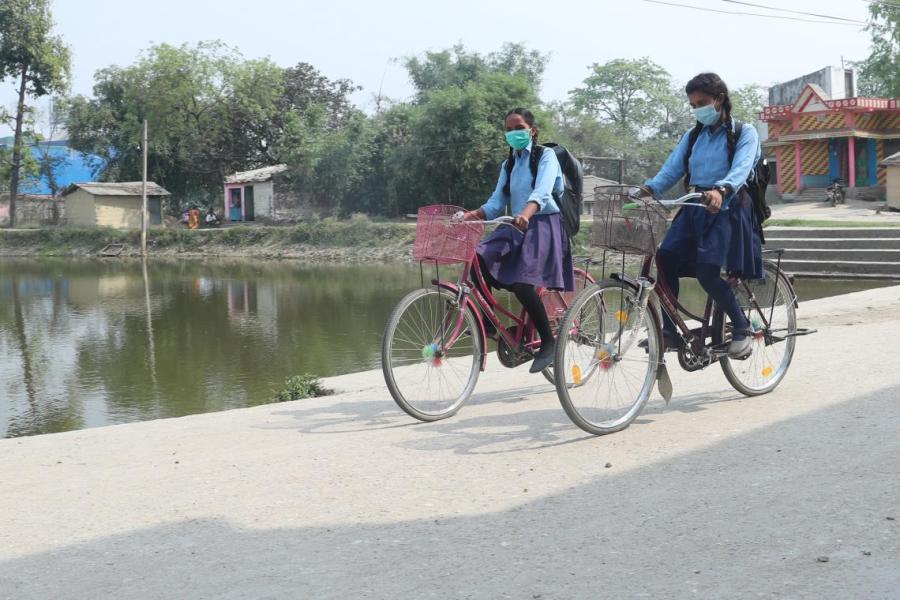
For children and caregivers alike
The long break from school due to the pandemic had been hard for Kumkum. She was very worried about her studies, and although she tried to keep to a schedule at home so that she would not fall behind, it was not the same. “It was difficult to stay motivated,” she says.
Being back in the classroom with her friends and teachers has therefore been a big relief for the young girl, with the Rupantaran sessions adding further to the thrill of the return.
“I like that the show talks about topics that our school textbooks might not cover,” Kumkum says, citing the example of the most recent episode on young people and savings. “Being careful with money, to not spend on frivolous things, these tips are useful in our daily lives.”
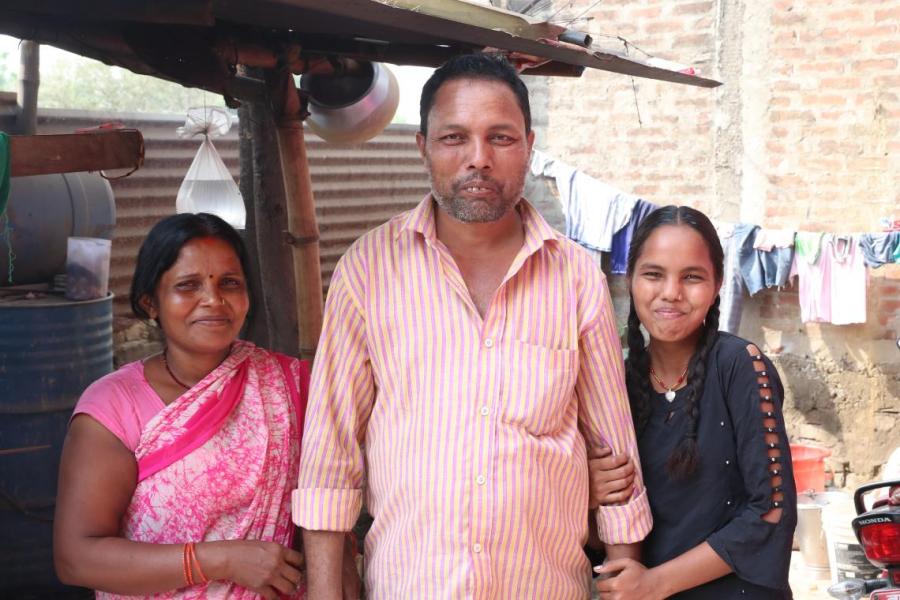
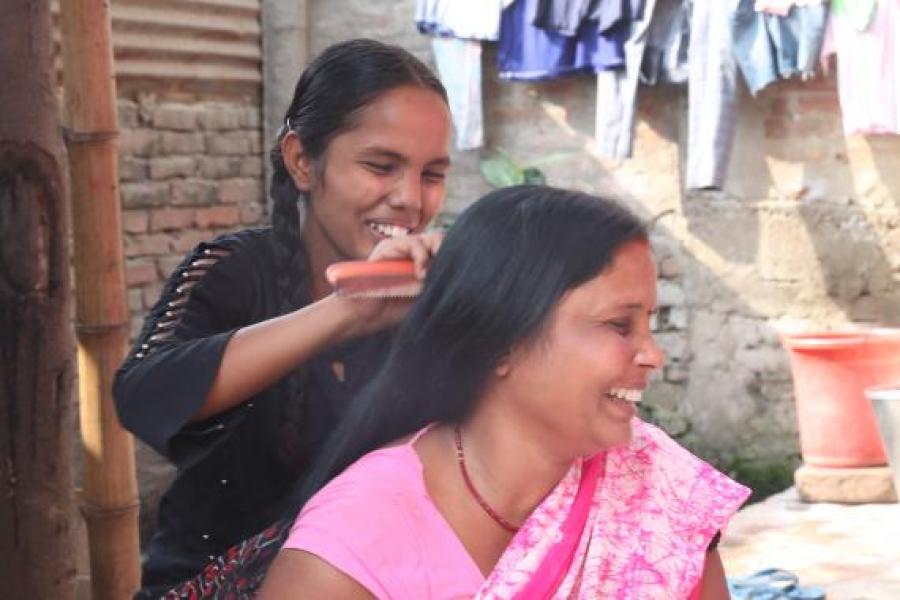
Kumkum’s parents are both pleased at seeing their daughter so excited and determined to learn and grow.
“She has loved school from the very first time we enrolled her, and always worked hard and done well,” father Jadulal says.
Although he admits that early marriage and the dowry system still prevails in their community, cutting children – especially girls – off from uncovering their potential, he says he is proud of his daughter’s achievements in school and eager to support her in becoming independent.
This sentiment is echoed by mother Laxmi, who listens to the Rupantaran radio show herself, especially the episodes targeted at caregivers. She says the discussions on sexual and reproductive health were extremely eye-opening for her, particularly in explaining the dangerous repercussions of child marriage on the bodies and minds of young people.
“We didn’t have that awareness when it came to our older children,” she says. “But we know better now.”
